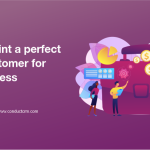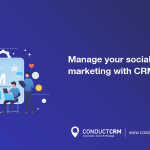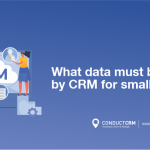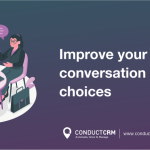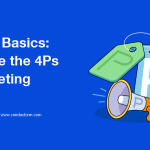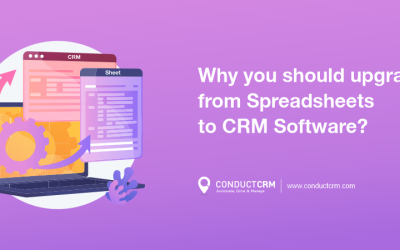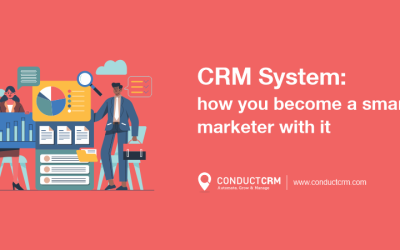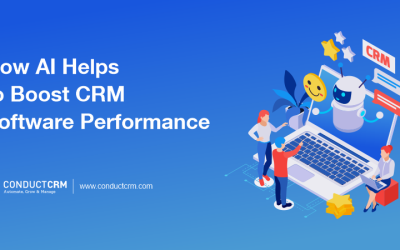Complete CRM Buyer’s Guide
Introduction
There’s never been a better time to learn about CRMs (customer relationship management systems), which are used by thousands of businesses to monitor and manage their relationships with customers. These days, customer data can help: prevent customer service issues; drive targeted marketing campaigns, and even help calculate expenses better. CRM software is available online and off, in print and on-demand, and supports virtually all industries. Discover how easy it will be to manage your CRM.
With the entire process in one place, you’ll have peace of mind knowing everything is under control. And best of all, this guide will come with the most powerful CRM system available, meaning you can be up and running in no time at all! CRM stands for Customer Relationship Management and helps you keep track of all your contacts in one centralized place. From meeting schedules to workflow management, managing your contacts with ease.
What is CRM?
CRM is a type of platform for customer management. It helps to keep track of all your contacts and keep track of all the information relevant to your business. It’s a set of tools that helps to improve your relationship with your customers. By using CRM, you can find more clients, remember important contacts, and move up the ladder of companies you’re with without having to be constantly chasing after hours of work.
CRM makes managing your sales and contacts simple. it’s the best CRM for sales. It delivers real-time insights via email and text message, helping you answer important questions and process information much more effectively. It’s a system for collecting and managing customer data in real-time. It allows customers to enter and manage information about themselves, such as job title, company ownership, email address, etc. With this information, CRM delivers actionable information that can help optimize marketing efforts and target the right audience with more precision.
Recommended Fior You: 5 Reasons Why CRM System is your Most Valuable Asset
How does CRM Works?
CRM works by helping you stay connected to your team, organization, and suppliers in real-time. When problems arise or opportunities present themselves, CRM manages the interaction so that you can make the best possible decisions. It matters not whether you have a large budget or a small one. Every penny counts when you’re trying to do something worthwhile. That’s why having the right financial tool is so important. My startup uses CRM Not only does it help me stay organized and track my finances, but it also gives me instant access to my prospects. I can chat with them face-to-face or send them deals they can take advantage of.
It helps to better communicate with and engage your current and potential customers – both old and new. It’s used by all sorts of businesses large and small to better manage relationships with customers. CRM will save you time, effort, and money in the long run by helping you stay connected with your most valuable customers. You can use it to keep track of leads, track orders, track expenses – basically anything that involves customer data! It gives you powerful insights to monitor your performance, provides accountability, and allows you to easily share your results with your team. CRM currently provides us with one of the top CRM solutions in the market.
It is a social hub managing all customer relationships. It acts as a bridge between the bank and customer and helps reduce errors, helps automate processes, and lets you keep track of your finances and data in one place. It gives you the benefit of the collective intelligence of sales professionals who are using it today. CRM stands for Customer Relationship Management and is one of the best solutions currently available for managing your customer relationships.
It helps you keep track of each contact you have with a customer, located where they are in their buying cycle, and helps you respond accordingly. Everyone in your organization can benefit from having accurate information about their finances so you know how to budget for the future and make smart choices that help all parties succeed.
The Top Things a CRM System can do for you
What is a data management system (DMS)?
A data management system (DMS) is a software system that is used to keep track of your information. When we say keep track of our information, we mean it. Such systems help to ensure that all of your records are in order and organized, as well as able to retrieve information from any source at any time. They can help you answer questions about your customer experience with your business, such as how often your clients call, when they call, what their issues are, and what their requests were.
What are the benefits of using a CRM?
CRM systems can help make your life easier by providing you with vital information that can help you make better decisions on numerous different levels. Not only can they help boost your profits, but they can also help you stay put with companies that are looking to fill positions in your industry or sell products. These tools help businesses keep track of their customers, identify potential issues and conflicts, and manage relationships effectively. Eventually, having a CRM can help your business significantly in various ways. It can help you grow your profits, increase employee morale, and keep your business running smoothly.
Here are some of the benefits of using a CRM: Many business owners think CRM is for technical support. This is completely incorrect. A CRM will help you solve your customer problem and improve relationships with your current customers and potential customers. A CRM can help you improve communication with employees. It will save you time from staff hiring and training new employees. Having a handle on your company’s reputation will go a long way towards attracting new leads and keeping loyal customers. The best CRM will have a simple interface and powerful features that will help you run your company efficiently.
What are the different types of CRMs in use today?
There are different CRMs (Customer Relationship Management) systems in use today. Each system is different in how it handles customer data and guidelines for use. This is why it is important to look at system characteristics before utilizing one. Before you utilize any CRM to manage your customer relationship management needs, it’s important to understand which type of CRM system you’re looking at.
One of the most popular types is the cloud-based software that is available for you to access and use from almost any device with a connection. Another popular type is the enterprise version, which has access integrated with other systems so you can make decisions on your DMS that influence ongoing operations. There are three fundamental kinds of CRMs in use today. They are mission-critical, transactional, and service-oriented.
Mission-critical CRM systems are CRM products designed to operate in dangerous, extreme, or unusual environments. They are used by military special operators, Federal agents, fire departments, and many others who must conduct dangerous operations 24/7. Just because a system can do something doesn’t mean it should. Unfortunately, many CRM applications built for mission-critical use today have been designed for short-term efficiency at the cost of long-term staying power or broader customer support.
Conclusion
Every business needs a copy of its CRM. CRM systems are an important part of nearly every business. They help coordinate your routine, keep track of your prospects and employees, provide important information during workdays, keep databases organized, and much more. The career skills you gain from using a CRM to run your small business can help you land new job opportunities after you graduate.
Discussions relating to software and CRMs are often confusing because the terms are often used interchangeably. Software CRM systems allow you to automate customer service interactions, connect with other vendors and employees, and run structured surveys that can help improve your sales performance and the overall satisfaction of your customers. However, software CRM’s are not limited to just sales. Any type of information can be leveraged from these systems for business intelligence and decision-making.

